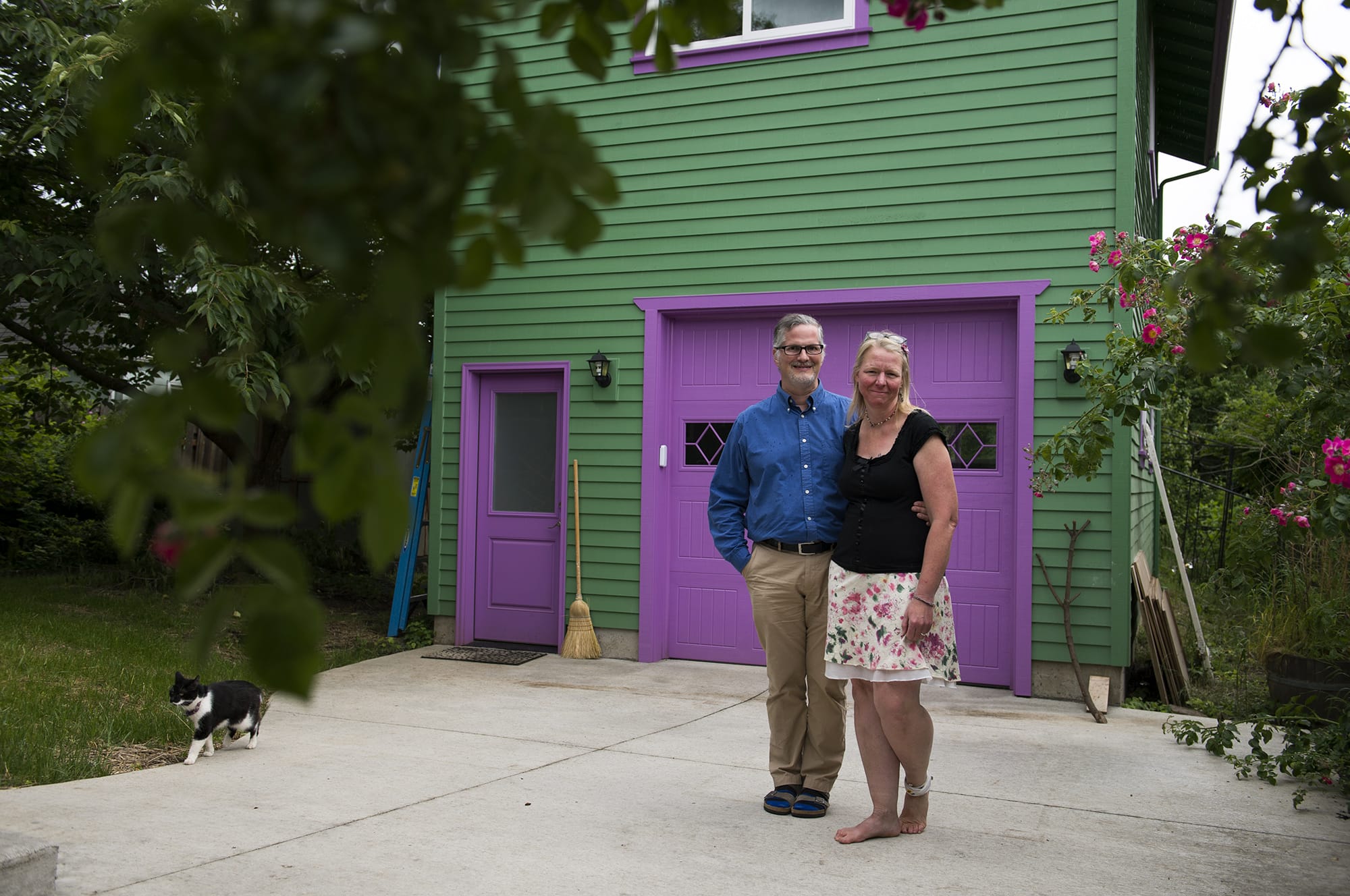The Clark County Council approved a package of code changes Tuesday promoting previously underused forms of housing to help ease the area’s housing shortage.
The council voted 4-1 for an ordinance that will make it easier to build cottage-style housing, small homes on shared or individual lots with a common open area. The ordinance also encourages accessory dwelling units, small additions to existing houses that typically come in the form of a converted basement, an addition or a new backyard building.
The ordinance raised concerns that it could end up increasing enrollment in Clark County schools while decreasing a source of funding. There was also concern that the ordinance could change the characteristics of neighborhoods.
Councilor Jeanne Stewart, whose district includes a large portion of Vancouver, cast the sole vote against the ordinance after it was amended to remove a requirement that the owner of an accessory dwelling unit live on the property while renting the unit out. The removal of this requirement means that the unit and the main house could be rented out.
“I’m not going to support the ordinance because, as far as I’m concerned, owner-occupation for ADU development of the primary residence is a must,” said Stewart.
Last year, the city of Vancouver updated the way it regulates accessory dwelling units and eliminated the requirement that owners live on site. The county council removed that requirement after hearing testimony that requiring owners to live on site would make building ADUs more difficult.
Stewart said that while there are good ideas in the ordinance, she worried that it could be “destabilizing” to neighborhoods if investors use the provision to increase rental housing.
Size changes
Although county code already allows for cottage housing and ADUs, the county code revisions are intended to make them more attractive options.
The ordinance lowers the minimum floor area for cottages to 150 square feet from 500. The maximum floor area will be increased from 1,200 square feet to 1,600 square feet.
The ordinance also creates definitions for both urban and rural ADUs. The ordinance allows ADUs in some areas with rural or agricultural zoning and would need to be attached to the primary dwelling because of a requirement in the state’s land-use law. It sets a minimum area for a rural ADU of 150 square feet.
The ordinance sets the minimum area for urban ADUs at 150 square feet. It allows basements to be used for these units, as long as there is a separate exterior entrance and its area doesn’t exceed the size of the first floor. The ordinance requires that parking be provided for both types of ADUs.
The ordinance also defines a “tiny house” as a single-family dwelling unit of not less than 150 square feet that is constructed or mounted on a foundation and connected to utilities.
Fee reduction
The council also reduced fees for the construction of ADUs. The county charges fees on new development to offset its impact on parks, schools and transportation. The council approved a 75 percent reduction in transportation, park and school impact fees for urban ADUs from the rate imposed for multifamily dwelling units. It reduces fees for school and transportation impact fees for rural ADUs. Park impact fees aren’t assessed.
Marnie Allen, assistant superintendent for Educational Service District 112, speaking on behalf of all nine of the county’s school districts, told the council that while the districts want more housing options, they had concerns about this provision.
“We don’t support, at this time, removing the requirement to pay school impact fees, because the size of accessory dwelling units under this ordinance that could be built in the rural area, families could move in that would enter and enroll in school and impact schools,” Allen said. “And as school districts, we don’t have data that shows that these accessory dwelling units aren’t being occupied by children that are enrolling in schools.”
But she said that the school districts would work with the county to produce data to determine if the new residents of ADUs included children enrolling in schools.




